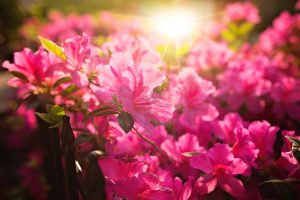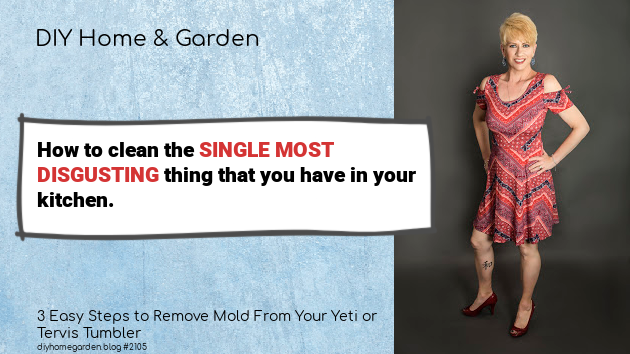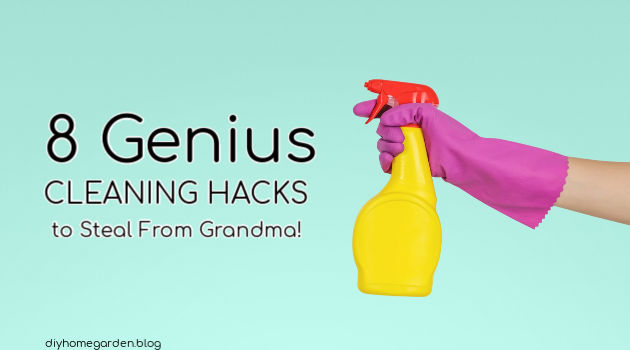Do you use white vinegar in the garden?. This useful product is cheap, readily available, and effective. Moreover, it is a safer cleaning solution for pets and children as there are no chemicals or harsh detergents to cause them harm.
In fact, I have often wondered what you can’t do with white vinegar in the garden or home!
Besides being effective, you will find it to be a healthier option, especially if you have breathing issues. I have asthma and find that those harsh commercial cleaners will often cause a flare up and send me grabbing up my inhaler. But when I use white vinegar, I find that I breathe easier.
So now, I purchase white vinegar, with 5% acidity by the half-gallon container every week. Because from the laundry room to the kitchen to the garden, I use it everywhere.
So, here we go with all the ways that I can think of to use white vinegar in the garden.
15 Ways to Use White Vinegar in the Garden
-
Natural weed control:
Skip the expensive weed killer, which is also poisonous to pets! Instead, pour white vinegar over pesky weeds and watch them shrivel over the next few days. They will easily pull out after they die off.
-
Mole control:
These backyard pests tear up your lawn and leave a mess! Moles are practically blind and deaf. However, they have an uncanny sense of smell. So they can’t stand the smell of white vinegar. It messes up their scent, which is their only guidance system. Drench a rag in vinegar and place it on a stake in the area where they are burrowing. They will start to avoid the area and move their activities elsewhere…like maybe the neighbor’s yard!
-
Deer repellent:
Deer are graceful and fun to watch. Until they eat your crops all the way to the ground. Repel deer kindly by pouring vinegar in plant saucers in the area where they enter your yard. Deer have a very keen sense of smell and vinegar seems to offend it.
-
Ant repellent:
Douse ant hills around the yard with white vinegar. Then, spritz it around your patio, doorways, and windows. They seem to start to associate the acidic odor with danger and avoid those sprayed areas. It’s also safer for your pets and children than poisonous insecticides.
-
Spigot cleaner:
Remove limescale build up from your spigot and hose fittings. Fill an old clay pot with vinegar and soak the fittings or spigot in the vinegar for a little while. Wipe away the now loosened limescale easily now.
-
Keep fresh cut flowers vivid:
When you cut fresh flowers from your garden, pop them in a vase with 4 cups of water and 2 Tbl of white vinegar. The flowers will remain vivid and fresh for longer.
-
Drop some acid (on your plants, silly!):
Azaleas and rhododendron thrive in acidic soil. Mix a gallon of water with one cup of vinegar and use this solution to water your plants every day while they bloom. The colors will be more vibrant and last longer.
-
Kill slugs and snails:
Slugs and snails visit your garden every night, feasting on your plants and causing damage that’s unrepairable and rendering the bounty of your garden unappealing. Keep a spray bottle of undiluted vinegar handy when you’re gardening and spray these pests vigorously. The acid kills them and will also act as a deterrent for other slugs and snails.
Video blog reveals one of the dirtiest spots in your kitchen–your travel mug! -
Clean up rusted garden tools:
Have you ever forgotten to put away a garden tool only to find it rusted later on? Soak the rusted tool in pure vinegar for an hour or so. The rust will rinse right off with the hose. Genius!
-
Clean clay pots:
Clay pots are a must-have garden accessory. However, they turn white looking over time. This isn’t “faded.” The clay pot is porous. So this discoloration happens when your clay pot absorbs minerals from your rainwater. Restore them with vinegar. Empty the dirt from inside the pot and knock the loose dust and dirt off the pot. Give the clay pot a gentle scrub with a soft-bristle scrub brush and white vinegar, then follow with a clear water rinse. Your pots will look as good as new in just a few minutes!
-
Trap fruit flies (use this trick for using white vinegar in the garden or your kitchen):
Fruit flies. I can’t stand ’em. They are nasty critters that contaminate the veggies that I grow, then catch a ride to inside my house. Ugh. While it’s virtually impossible to stop them from coming inside the house, they are easy to catch using vinegar as the bait. Remove the cap from a 16 oz. soda or water bottle. Fill the bottle with 1/2 cup of water, 1/4 cup of vinegar, 1 Tbl sugar, and 2 tsp of liquid dish soap. The fruit flies will be attracted to the scent of the vinegar and sugar water (ever notice how they love fermented drinks like wine?). Once they enter the bottle, the dish liquid will weigh down their wings and they will drop into the liquid. Gotcha!
-
Free up a rusted screw:
Don’t you hate when a screw gets rusted and won’t turn? This happens all the time in moist areas like covered porches and garages. Pour a little vinegar over the screw, and the rust will come loose. This will allow you to loosen the screw.
-
Clean the grill grates:
Grill grates can get downright nasty. Soak them in a dishpan in a 50/50 solution of water and white vinegar for 15 minutes. Scrub them with a disposable nylon scrubber, and give them a thorough rinse. They’ll be as good as new.
-
Clean mildew off of plastic patio furniture:
Plastic patio furniture tends to collect mold and mildew. Vinegar easily cleans off the mildew without the need for those harsh mildew cleansers. Clean the furniture as you normally would, swapping the commercial cleanser for a 50/50 mixture of white vinegar and water.
-
Clean bird feeders and birdbaths:
Use white vinegar and water to clean out your bird feeders and bird baths periodically. While the birds don’t mind the dirt, this will keep them looking new and pretty for longer. You don’t want to use detergents that will leave chemicals behind for the birds.
The Takeaway: Using White Vinegar in the Garden is Safer and Healthier for You and Your Wildlife Friends
Using white vinegar in the garden is very convenient. It is such a wonderfully effective product. It cleans, sanitizes, and works wonders in ways you would maybe never think of! If you make vinegar your main household cleaning product, you will create a chemical-free environment that’s safer for children and pets. Plus, you’ll save tons of money on expensive cleaning products!
If you have any other tips for using white vinegar in the garden, please do share them. I’d love to hear your ideas and feedback.






